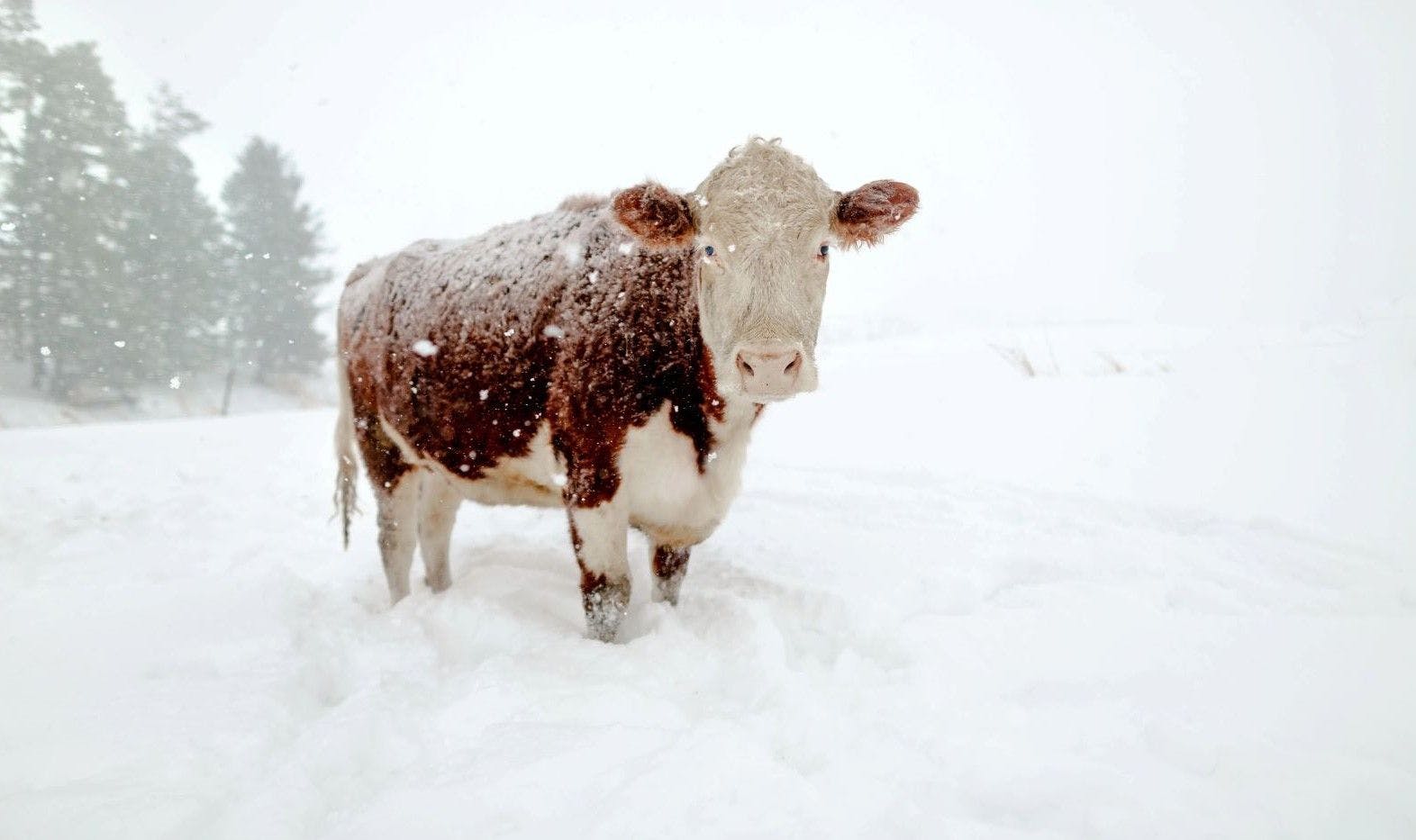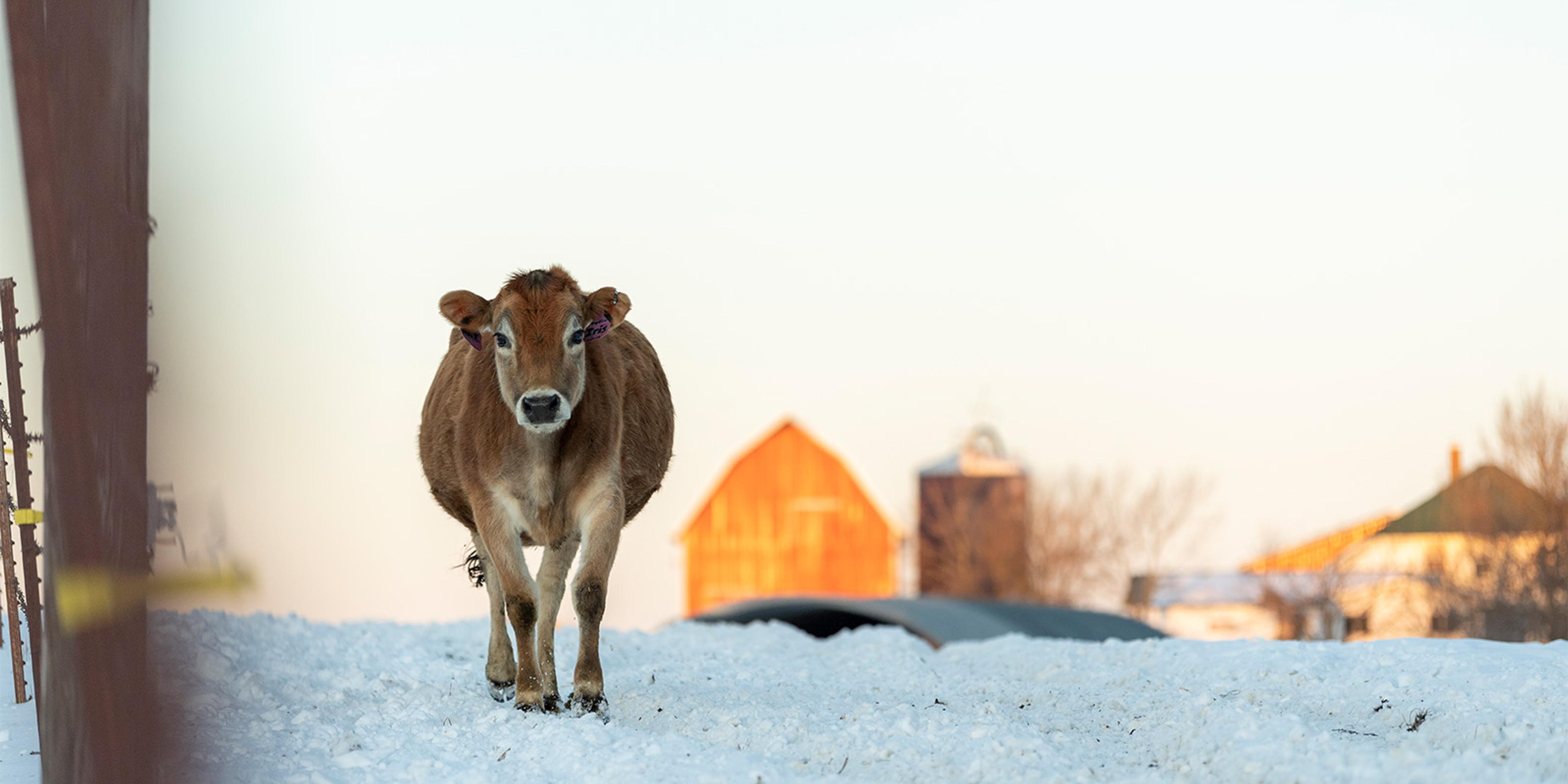
Farming
What Do Farmers Do During the Cold Winter Months?
The majority of Organic Valley farms are in climates where winters get cold. And believe us, it gets cold in Wisconsin, where Organic Valley was founded — really cold. It’s common for temperatures to dip below zero, and up to 50 inches of snow can fall from November to early April.
On a farm, there’s no such thing as a snow day, at least not the kind where you try not to travel and opt to stream the latest binge-worthy series or make snow angels with the kids. Farm work does not stop for weather, family emergencies or holidays. In scorching heat and during brutal cold spells, farmers are milking cows and making sure the animals are content. Do farmers work in the snow? You bet. Farming in winter does bring challenges and a fresh set of chores, but farming in winter also has a delightful side!
What do farmers do in winter?
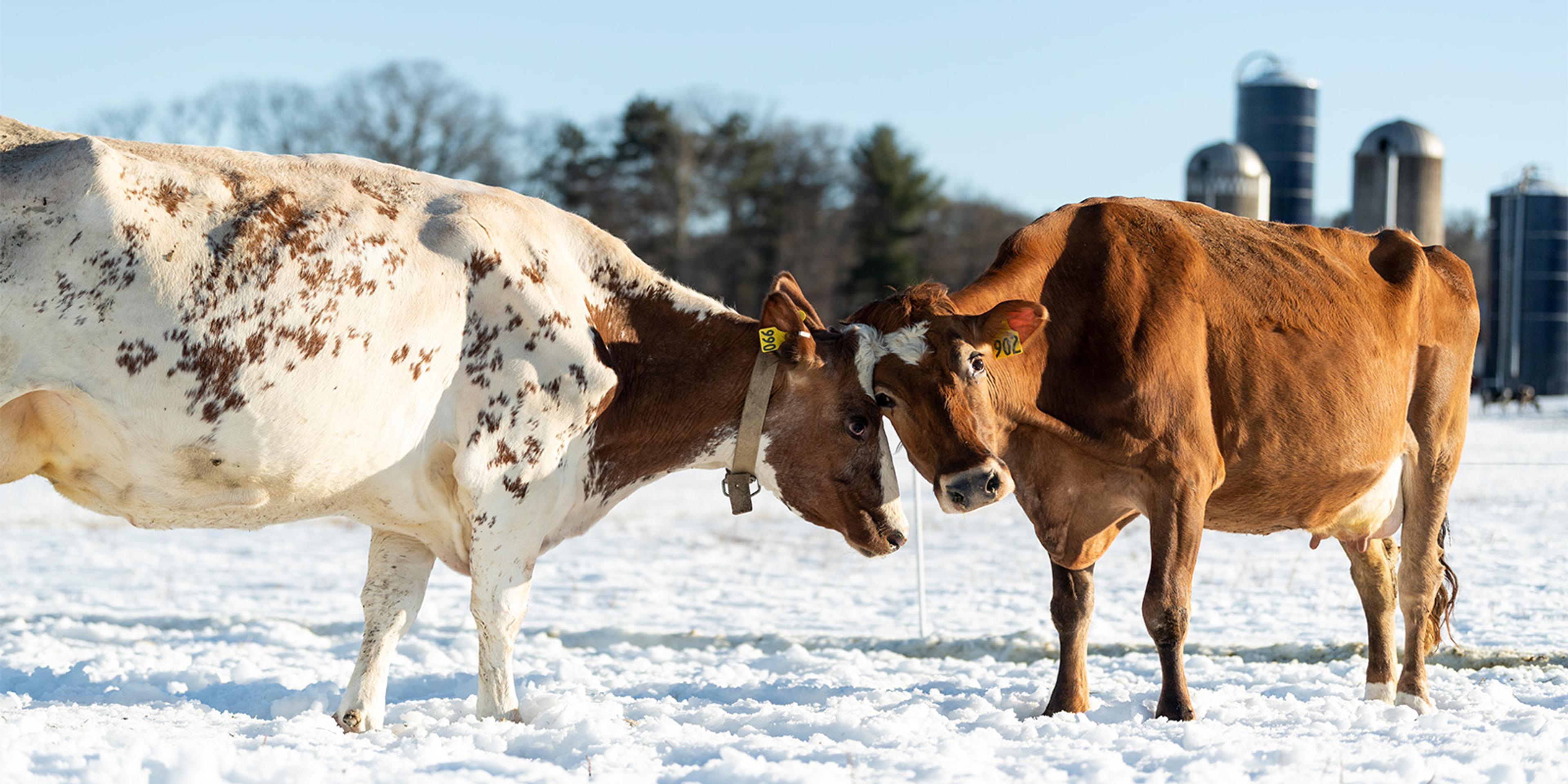
Cows on the Gearing farm don’t mind the cold.
Keep the Farm Clean
Brushing snow from vehicles and shoveling sidewalks are common for homeowners in cold climates, and farmers also spend a lot of time moving snow. Plowing snow and freshening cows’ bedding is a priority on “snow days.”
Organic Valley farmer Marques Koenig of Wisconsin is very particular about keeping the snow pushed back even though it is time-consuming. It took him eight hours to plow during one December snowfall.
Why is snow plowing important on the farm? When snow starts to thaw, it gets muddy. Koenig wants to ensure the cows are comfortable and, well, who wants mud everywhere? Plus, the milk truck has to get in and out of the driveway to pick up fresh milk.
Another Organic Valley farmer in Wisconsin, Dallas Gearing, also spends a lot of time moving snow during the winter. He wants the area where cows are fed to be as clean as possible so the cows don’t slip.
There are other reasons to keep the snow at bay. For example, too much snow accumulated on Gearing’s shed one winter, and the roof caved in.
Organic Valley farmers constantly clean feedlots and lay fresh bedding to make sure the cows are nice and comfy. Cows prefer to be outside, but if they do want to take a break, fresh bedding is ready when they return to the barn.
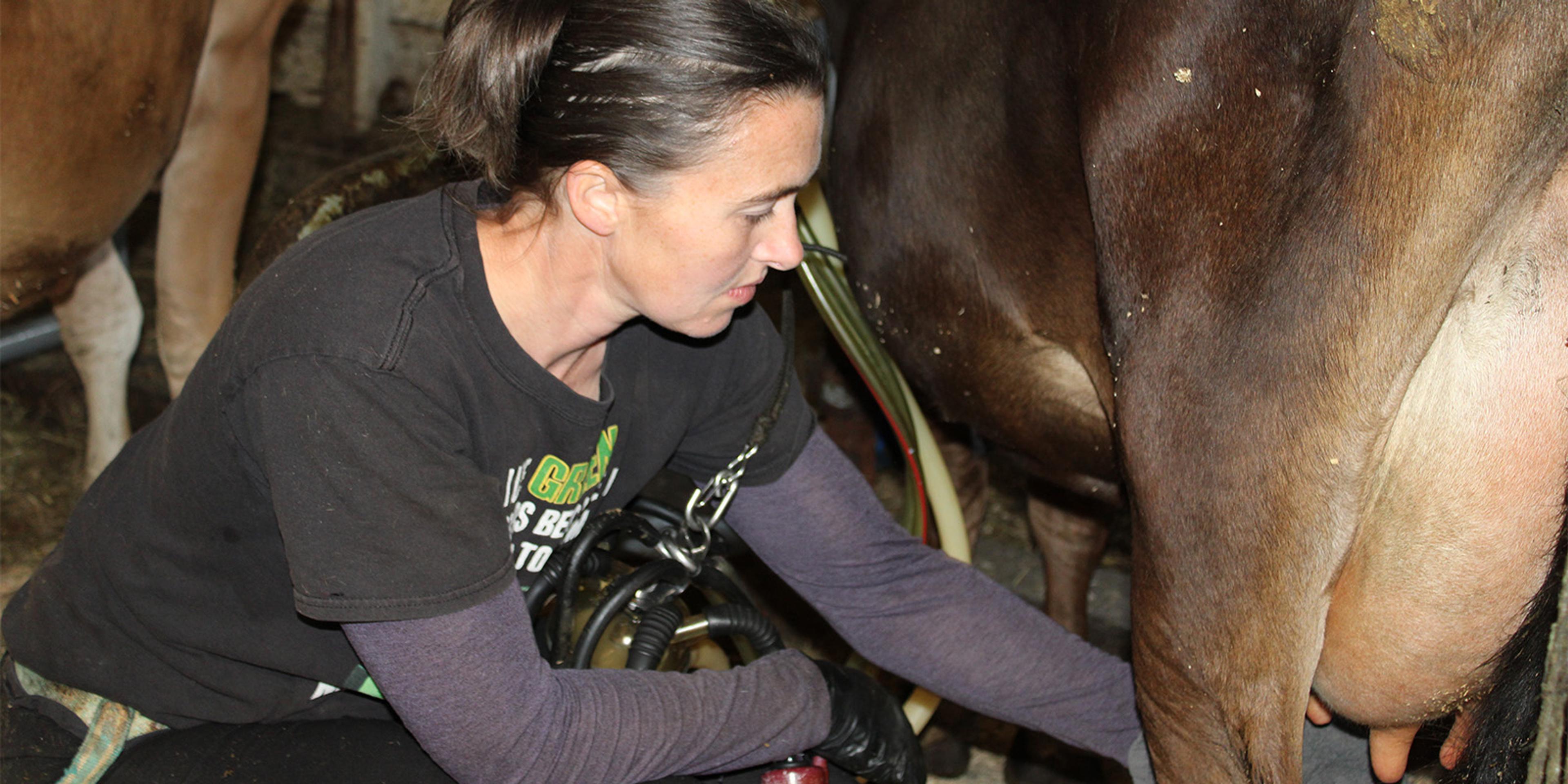
Sonya Roberge preps a cow for milking on her organic farm in Vermont.
Make Sure the Cows Are Milked
While milking the cows is not much different during the winter — milking still starts before the sun rises — unexpected equipment hiccups can cause issues. Gearing and Koenig both have experience with this.
Power went out in the middle of milking cows one harsh night in December after a tree fell on a powerline at Gearing’s farm. Power is needed to run milk pumps, cool milk and, of course, keep the lights on. Gearing trudged through 8 inches of heavy snow in the dark to get a tractor and hook up a generator to bring back power.
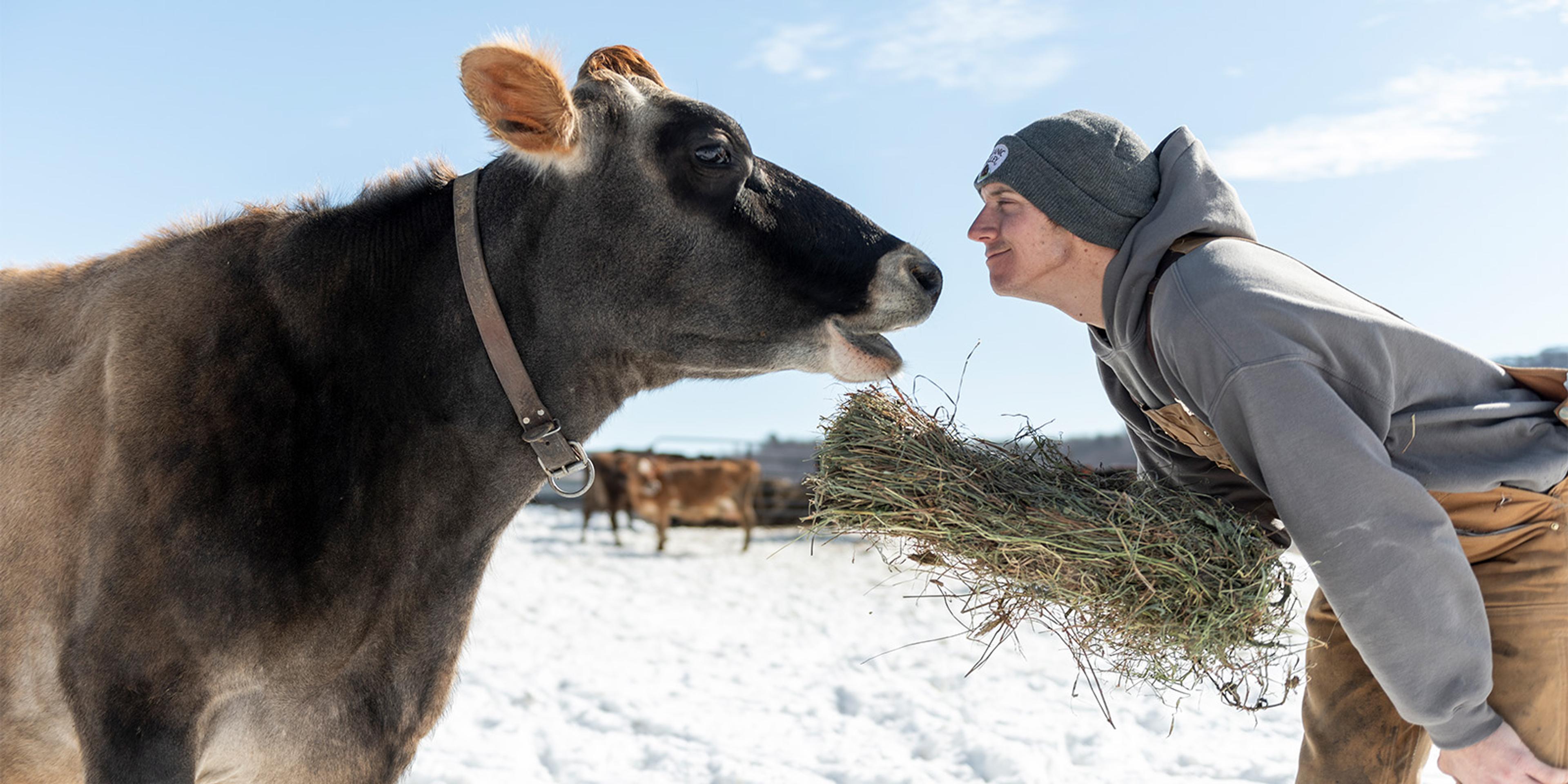
Marques Koenig feeds the cows on his Wisconsin farm.
Feed the Cows
Winter can cue our desire for comfort foods like warm soups and fresh-from-the-oven bread, but a cow's comfort food is the same all year long. Grass! Cows that live on Organic Valley farms spend most of their time outside (pasture is where they like it most). About 80% of conventional dairy cows do not graze at all, according to the Department of Agriculture.
Organic Valley cows spend every possible day of the grazing season, grazing. Just like a child, cows prefer to be outdoors when the snow flies. Though they have the option of shelter, sometimes cows only come in when it’s time to be milked.
Another winter chore that keeps farmers busy is making sure the cows’ bellies are full of enough nutrients to keep them happy and healthy when the pasture is covered in snow. Thanks to crops and grasses harvested in the fall, there is plenty of food. Adequate organic feed and nutrients are necessary for cow comfort and for producing quality milk.
Farmers are constantly taking dried grasses like hay and grain to the cows. (Unless the cow’s milk is used for Organic Valley Grassmilk® products. Grassmilk cows only eat grass and dried forages.)
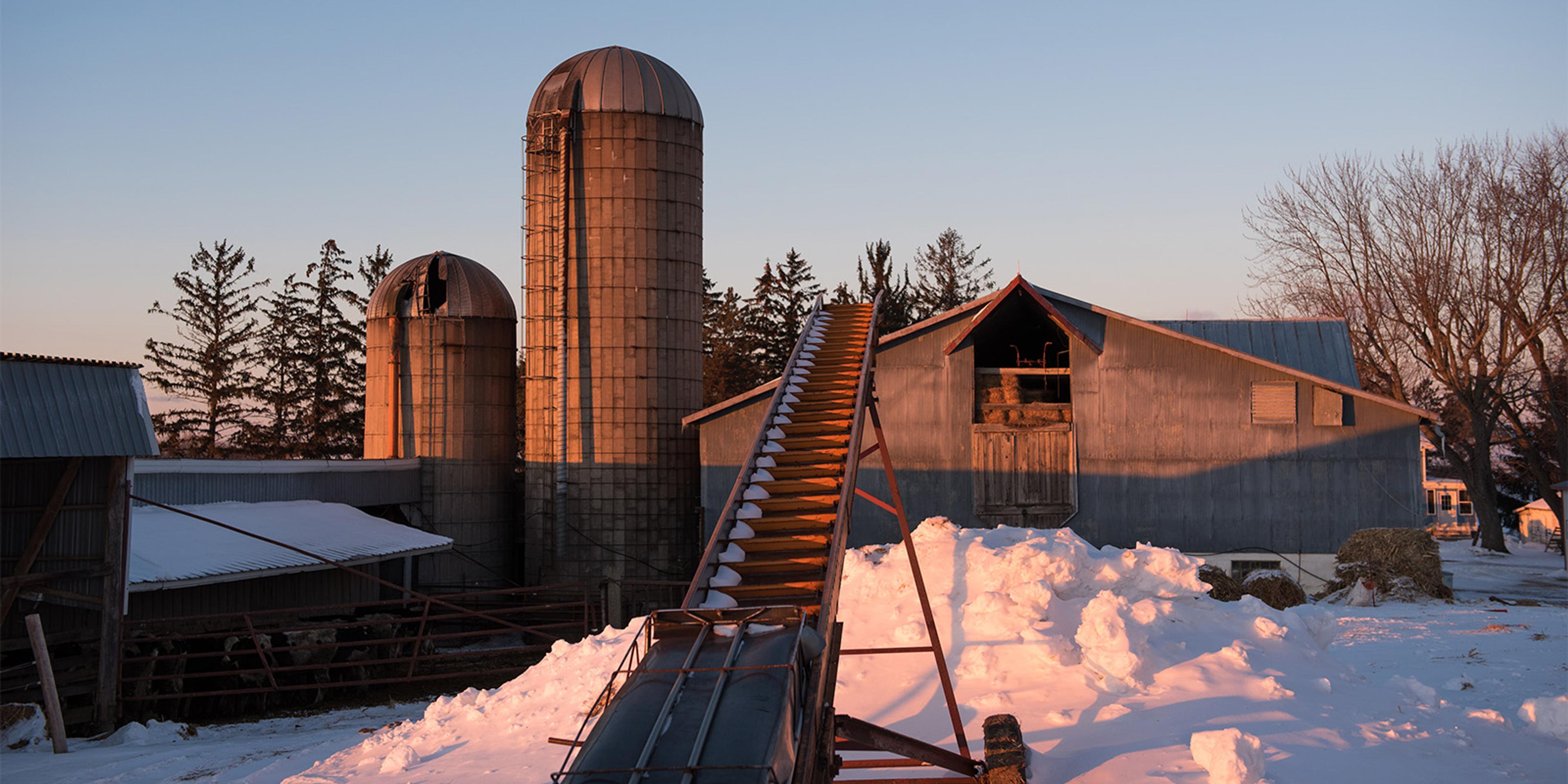
A hay elevator sits dormant on an Organic Valley farm.
Prepare for an Equipment Breakdown
If you’ve ever been running late on a snowy winter morning only to find that your car also thinks it’s just too cold to go into work, just imagine trying to fire up farm equipment.
The cold itself does not bother Gearing physically, he said on a zero-degree morning in December, but like you, he knows the frustration of a car that does not start.
“I can put on as many warm clothes as I want in winter and remove a layer if needed; you can’t do that in summer.” It’s farm equipment that won’t start or breaks down due to cold weather that bothers him.
Taking care of farm equipment that will inevitably break down is his least favorite farm chore. On the coldest day of the year, something always seems to break, be it a barn cleaner, silo unloader or skid steer, he said. “Equipment is not made to run in 20-below-zero temps.”
The combination of cold and an equipment malfunction was the breaking point for Koenig. Keeping tractors and equipment from issues was a losing battle in winter, he said. After spending hours outdoors fixing a machine that broke down when it was 20 below, he had had enough and built a heated shed. Here, all his equipment stays warm and even starts in the winter! The beauty for his neighboring farmers and friends is that he always leaves a space in the shed for them to work on their vehicles and farm equipment when it has issues.
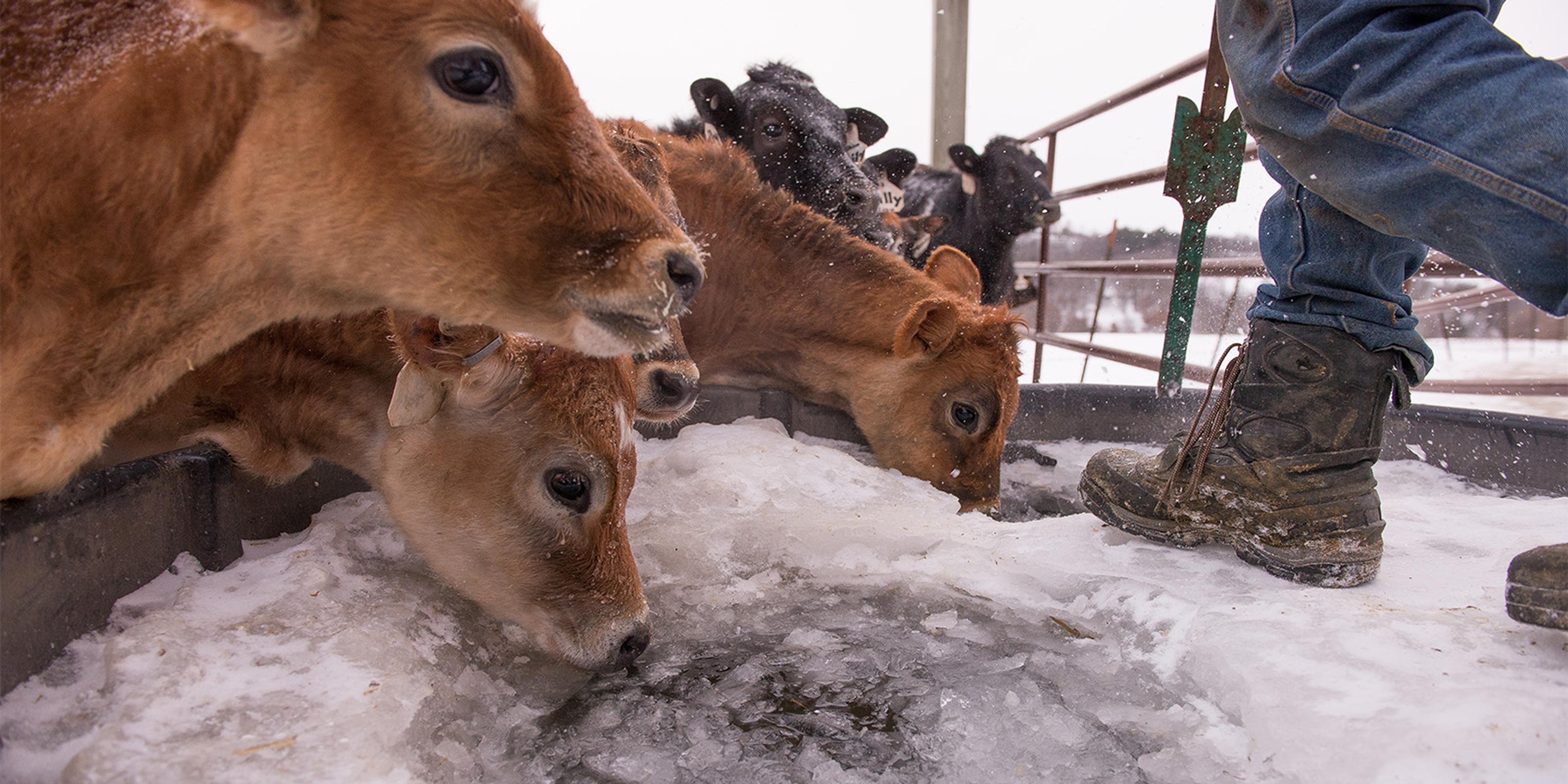
Breaking ice to ensure the calves have water on the Koenig farm.
Don't Let Water Tanks Freeze
Depending on things like the cow’s age, body size and the air temperature, a cow can drink 3 to 30 gallons of water per day, according to the University of Nebraska-Lincoln.
Water freezes at 32 F, but the herd still needs water. Many farmers in cold climates have heated livestock waterers. Of course, they regularly check that heated waterers are functioning (if you live in a drafty older home, you know what it’s like to worry about pipes freezing).
Some farmers manually break ice multiple times a day to make sure there is fresh water for livestock.
Another way farmers keep water flowing is by using excess water that circulates through the milk cooler to rapidly cool milk. The water comes out warm and can be piped to the cows’ watering troughs.
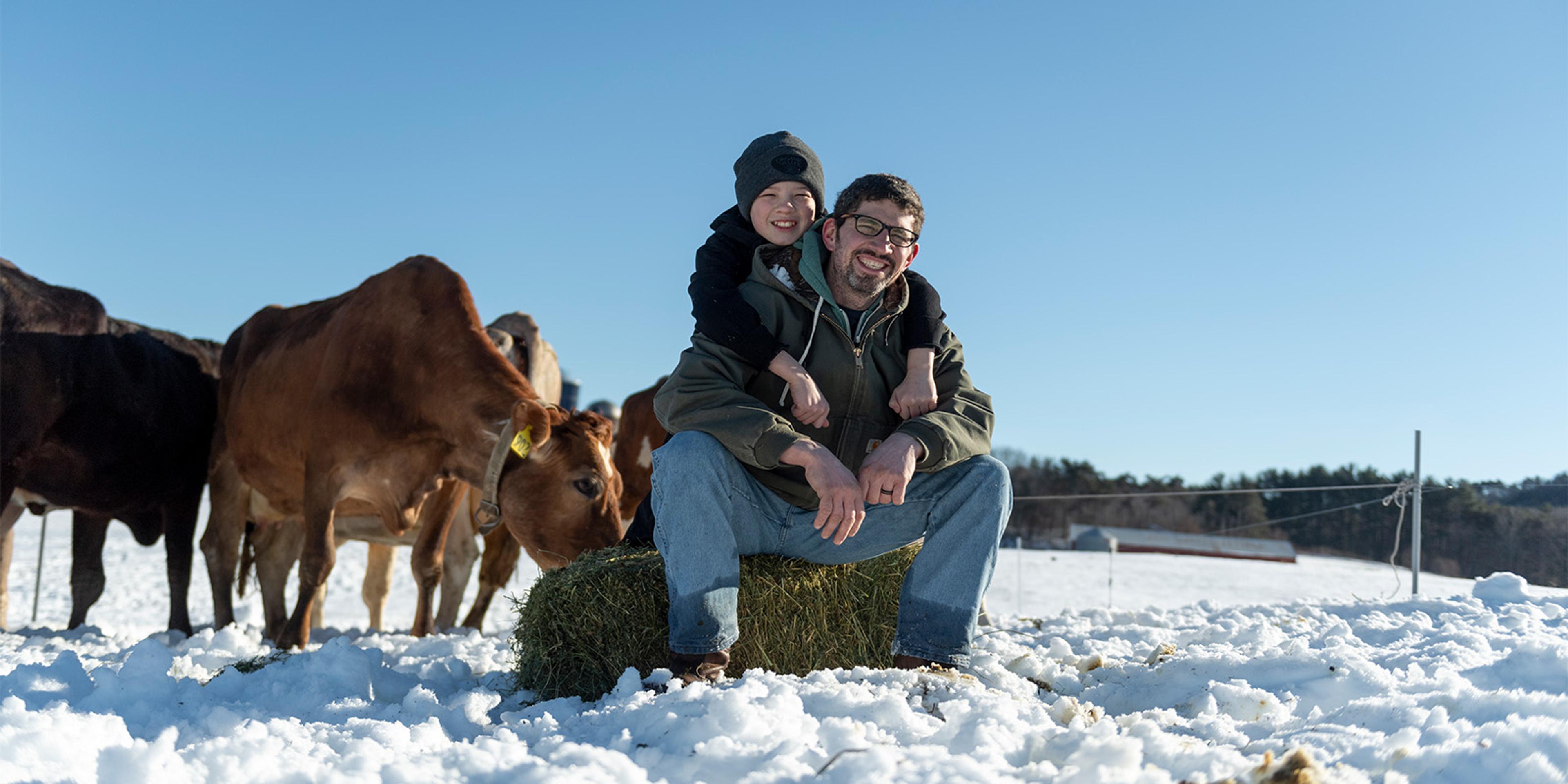
The Gearings on their organic farm.
Take a Break From Farm Field Work
Farming during winter months provides downtime. With spring, summer and fall come hours of time in the field planting, caring for and harvesting crops. Cutting and raking hay for winter storage is a warm-weather task that also takes a lot of time.
But a benefit of snow for farmers is the inability to do field work! Gearing doesn’t mind getting in the field, but he also likes the extra time allotted in winter to take a breath, stand back and really appreciate his surroundings.
“I enjoy winter. I can look at the landscape and watch the cows run around,” he said. It’s also a time for the family to spend more time together and go skiing and snowshoeing. “Without having to do fieldwork, my family can get out and do these activities.”
Koenig is all about a break, too, and said winter is a good time to step away from the farm for a mental reset because there is more free time.
While a farmer may leave the farm for a bit, someone is always there to care for the animals.
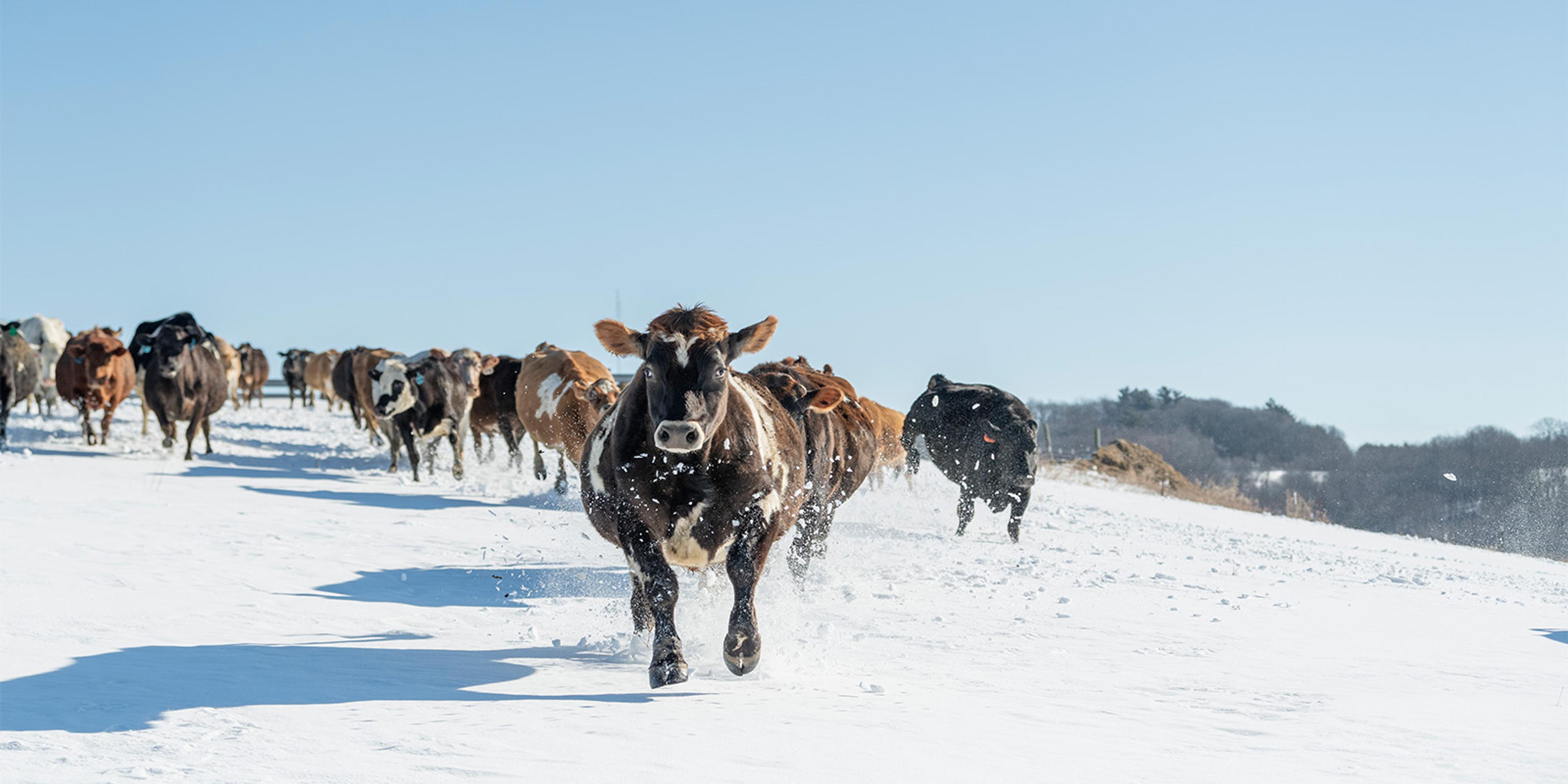
Cows on an Organic Valley farm enjoying the snow.
Enjoy Life on the Farm!
You may think of a chore as a disliked task. We don’t think of it like that. A chore is a day-to-day task that must get done. Gearing embraces life on the farm during every season, even if Mother Nature gets testy and the chores are aplenty.
The most fulfilling “chore” is a constant no matter the season for Koenig and many Organic Valley farmers.
“I enjoy milking cows. Otherwise, I wouldn’t do this,” Koenig said. “If you are going to farm in winter, it's dedication. It’s what I love to do.”
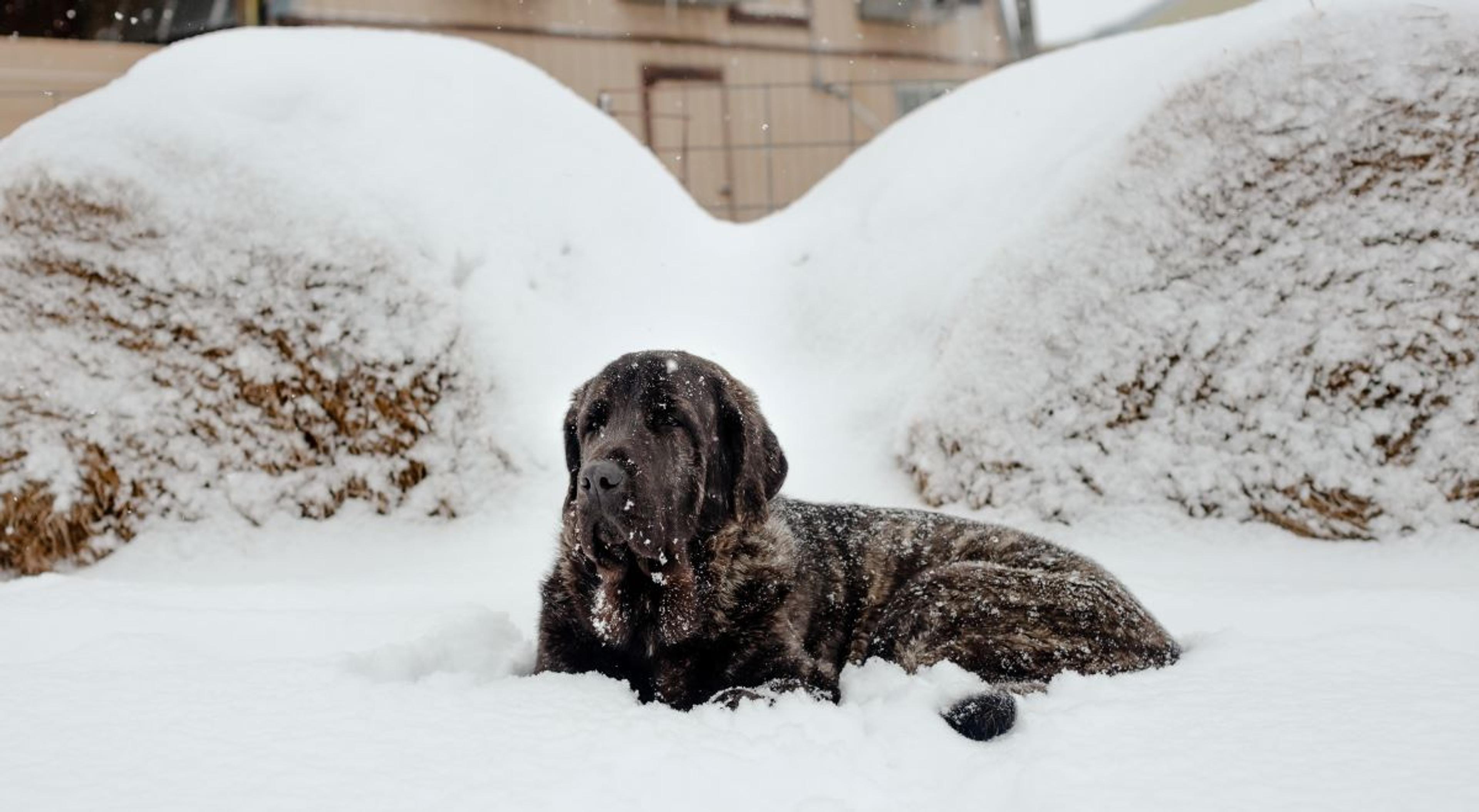
Some dogs don't mind the cold one bit, like this big dog on the Gretebeck farm in Wisconsin.
An antique typewriter fanatic and chicken mom who treasures time outdoors admiring all that nature has to offer, Jennifer McBride is Rootstock’s editor. McBride spent 15-plus years as a journalist and newspaper editor before finding her niche with the nation’s leading organic dairy cooperative. Contact her at Rootstock@organicvalley.com.
Related Articles
- Tags:
- animal care,
- farm labor,
- farm life













